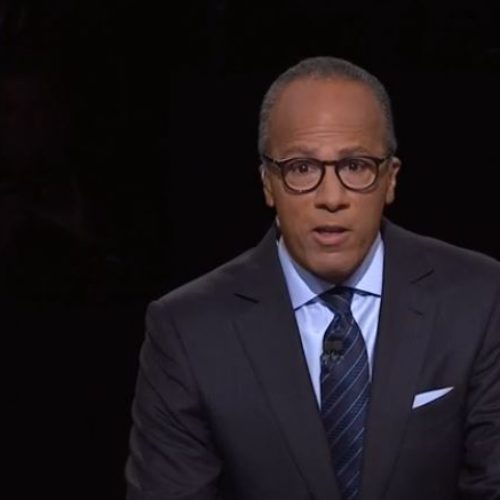Team Rubicon: Engaging Veterans on a New Field of Battle
Team Rubicon: Engaging Veterans on a New Field of Battle
Imagine you’ve spent months, years, even decades serving your country in the military. You’ve done a lot of things that most people aren’t cut out to do, and, along with your service, you’ve developed a specialized skill set. A skill set that was often honed in the high-alert, adrenaline-fueled field of battle.
What happens when your military career is over? Does your desire to serve your country and others just vanish?
Transitioning to life away from the battlefield presents many challenges to combat veterans, not the least being how to find a new sense of purpose after they’ve separated from the service. These men and women have devoted significant portions of their lives aiding others, and it can be disconcerting to be cut off from that kind of work.
For many veterans, serving others isn’t a career; it’s a way of life.
Enter Team Rubicon. Two former Marines, Jake Wood and William McNulty, founded the nonprofit after the devastating 2010 earthquake in Haiti. The disaster left more than 220,000 people dead and hundreds of thousands more injured. It nearly leveled the capital city of Port-au-Prince and displaced millions of families.
Wood and McNulty, along with six other veterans and first responders, took it upon themselves to gather necessary funds and medical supplies, and make their way to the Dominican Republic. As they crossed the Artibonite River into Haiti, they crossed their own version of the Rubicon — the river that Julius Caesar famously crossed with his army when he came to Rome to rule.
The team in Haiti was well prepared for what awaited them. Using skills and tactics from their days in the military, they ventured into areas of the country that were nearly impossible to access and rendered aid to those who needed it the most.
Team Rubicon had found its mission: to engage veterans on a new field of battle — disaster relief.
“Since our founding in 2010, Team Rubicon has responded to over 120 natural and humanitarian disasters,” Team Rubicon USA marketing officer Mike Lee tells Opportunity Lives, “We maintain a roster of nearly 35,000 members, over 4,000 members have deployed on disaster response operations. In total, we’ve spent about 280,000 volunteer hours in the field.”
Already this year, Team Rubicon has deployed to Louisiana, Mississippi and Oklahoma to assist after severe flooding, and to Flint, Michigan to assist with the water crisis. Teams are currently aiding victims of the recent Houston floods and the earthquake in Ecuador.
When disaster strikes, Team Rubicon strives to deploy local veterans, who not only can respond quickly to the crisis, but are also invested in the community and will continue to be a presence during and after the recovery period.
“Most times a local government or emergency manager will reach out to Team Rubicon for assistance, based off the needs of the local community,” Lee explained. “However, if it is a significant, large-scale disaster, we’ll immediately deploy a recon team to determine the damage and needs of a local community so we can quickly provide aid.”
Once a need has been identified, Team Rubicon aims to have 10 volunteers on the ground in the first 24 hours; 20 volunteers in the first 48 hours; and 30 volunteers in the first 96 hours. Services include incident management, damage and impact assessment, debris management, hazard mitigation, home repair, volunteer management and medical relief (for international efforts only).
Team Rubicon performs its services at no cost to those affected by disasters, thanks to the generosity of its donors. Strategic partnerships with corporate powerhouses like Home Depot, Southwest Airlines, Bank of America, and American Express, among others, allow Team Rubicon to expand their services, assist more disaster victims, and engage more veterans in life-changing experiences.
Knowing that disasters are relatively rare, but the challenges of everyday life are constant, Team Rubicon keeps their volunteers engaged between deployments through fitness challenges, social events, service projects, and training. There is also special program open to a select group of volunteers — the Clay Hunt Fellows Program, named for an original Team Rubicon member who took his own life, as happens all too often with combat veterans. The intent of the program is to prepare participants, all of whom are veterans, to participate in the civilian workforce and to take greater leadership roles within Team Rubicon.
Finding renewed purpose for veterans is the truly the ultimate goal of Team Rubicon. U.S. Navy veteran Donna Burdett relates her experience: “Honestly, I did not think they would want a broken down body with a barely working mind, but no one looked at me as broken. I had purpose again. I adopted a new attitude. I couldn’t do everything, but I could do something. These people accepted me for who I was. I had value again, and by the end of the operation, I had made friends I’m sure I will have for the rest of my life.”
Mike Lee agrees, “[B]y finding a new and specific mission through disaster relief, and by witnessing the direct and very tangible impact you as an individual can have — especially by helping those who have just lost their homes in a tornado or flood — it’s powerful.”
Originally posted on Opportunity Lives.


